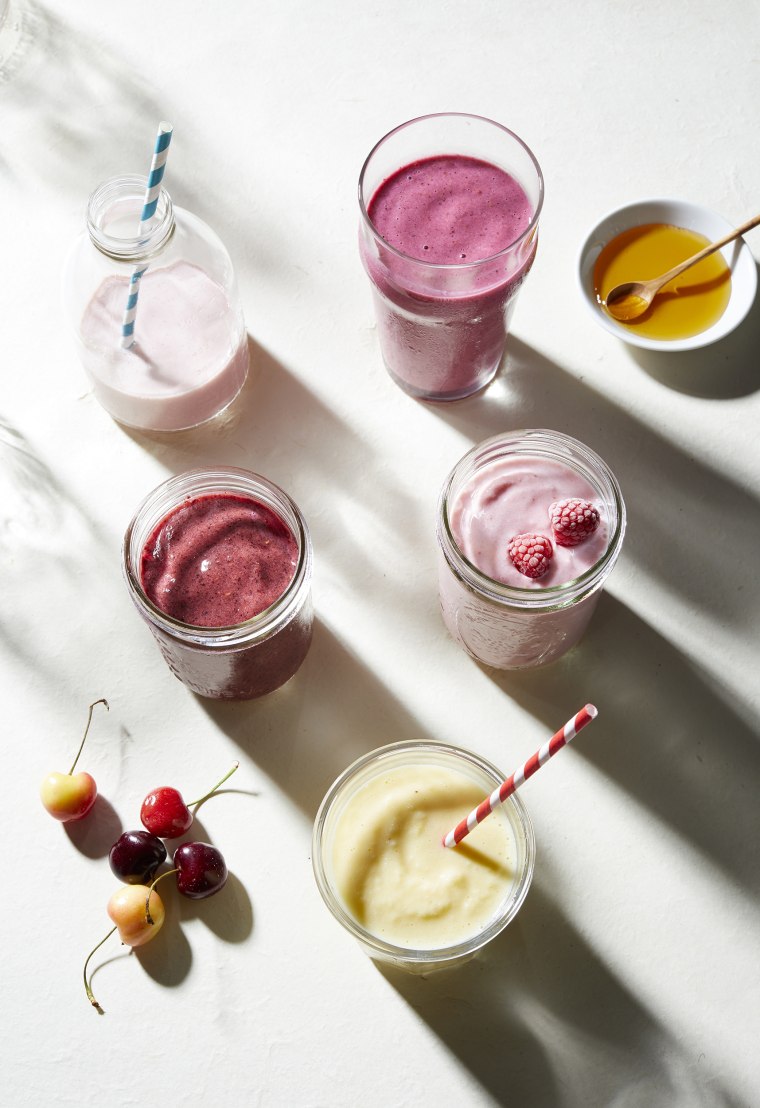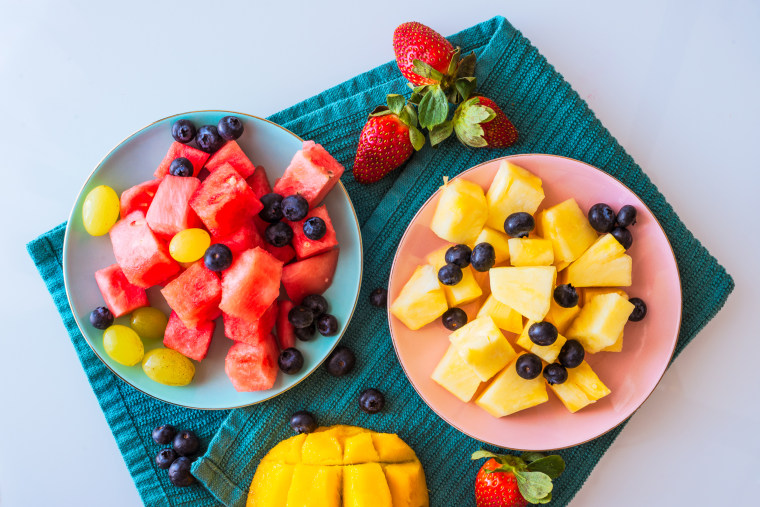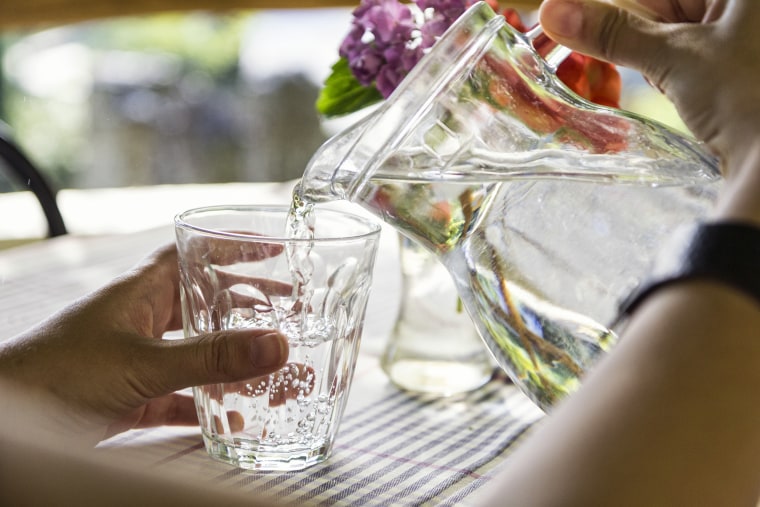An extreme new diet has been spreading on Instagram, promoted by people who claim to be wellness enthusiasts. Known as "dry fasting," the regimen urges participants to restrict food and liquids, including water, for hours or days.
That's a dangerous idea that is "not healthy in any way, shape or form," says nutritionist and registered dietitian Leslie Bonci. Dry fasting, or any diet that limits hydration, can have harmful side effects.
"The biggest issue is the limitation on fluid," Bonci told TODAY Health. "Hydration is absolutely essential. We know that there are so many health impacts to being marginally sub-hydrated, let alone saying, 'Hey, let's put ourselves on a massive fluid deficit!' I just want to start smacking people!"

Sophie, an Instagram user who speaks candidly about her diet and regimen and asked only to be identified by her first name, says that she is a "fruititarian" and intermittent dry faster, typically going 13 to 18 hours a day without hydrating or eating. When she does consume food, most of her diet is based around fruit. She began dry-fasting just over a year ago, after a naturopath recommended the practice, and at the time underwent a 36-hour dry fast to start the regimen.
Hydration is absolutely essential.
"I changed my diet and transitioned to less and less water," she told TODAY Health. "Nowadays I hydrate from fruits, coconut water and juices."
Sophie said that she has not had any negative side effects from the fasting, but saw it as a "natural next step" in her diet and claims to feel healthier on this diet than she has before.
"I feel the best after having fruits," Sophie said.
While there are some fruits with a high water content, such as cantaloupe and strawberries, registered dietitian Sarah Van Reit cautioned against using fruit as a primary source of hydration and said that a diet like Sophie's is typically not sustainable.
"There is water in our fruits and vegetables, but, for example, a cup of grapes has about 100 milliliters of water in it," said Van Reit, who frequently works as a nutrition counselor. "An adult body needs over 2,000 milliliters of water per day for just general healthy functioning, so to rely on fruit and vegetables to provide all the fluid that the body needs is not realistic."

"Even though most fruits and veggies are 90% water or more water, you would still have to eat an awful lot of them to meet your daily fluid requirements," said Bonci. "Plus, it is not always convenient to be munching on produce all day long. There are water fountains, not lettuce fountains! How much celery can someone reasonably eat?"
Jesse Boudreau, 42, says he started dry fasting three years ago and lives a highly active lifestyle where he runs a landscaping company and farm in New Mexico.
"I dry fast 16 to 22 hours daily, followed by a period of consuming liquids (like) broths, fresh pressed juices, smoothies, tea and soups," he told TODAY over Instagram, where he runs an account called @the_life_cultivationist. "Dry fasting has given me more clarity of mind, more energy, a greater sense of well-being, confidence and self-mastery."
Bonci isn't buying Boudreau and Sophie's claims that they felt healthier on a dry fasting diet.
"Your body can get used to going without food, and not everyone experiences hunger and lightheadedness, but that does not mean it is healthy," she said. "It is what we don't see, the effect on the kidneys, the brain, the muscles, and the transport of nutrients to the cells."
Both Bonci and Van Reit said that they were worried about potential risks around the diet, as well as quality of life issues that could emerge from depriving oneself of water.
"The body has to be hydrated every day," Bonci explained. "It's going to get extremely resourceful in a not-so-wonderful way, like breaking down muscle or putting more stress on the kidneys and the liver. This is the problem with it, let alone the headaches and nausea and possible nutrient deficiencies."

The risk of dehydration from not consuming food or liquids is very high, said Van Reit.
"I don't know of any possible scientific benefit to depriving the body of fluid," said Van Reit. "Mood can be altered, concentration and focus will be lost, energy levels will drop. There's definitely risk for kidney problems."
Joanne Edwards, 35, said that she currently intermittently fasts for around 17 hours a day, and eats a vegetarian, dairy-free, and gluten-free diet. Edwards, who lives in Thailand, is planning to try a dry fasting diet in late March when she enters a monastery as a Buddhist nun. She first heard about the practice when she lived in Egypt during Ramadan.
"I will be meditating for most of the day, but it will be very hot," said Edwards. "I see it as a mental test."
Bonci noted that dry fasting is even more extreme than Ramadan, which does allow for fluid intake. And when people fast for religious reasons, the fasts are generally capped at 24 hours, experts say. Plus, anyone with a medical reason is exempted. They’re also encouraged to focus on rehydrating once the fasting period is over.
Unless it's for a cultural or religious reason, there is no medical reason to engage in a dry fasting diet, Bonci said.
"Walk away quickly," she warned. "Fill up your glass and get out of there as fast as you can."